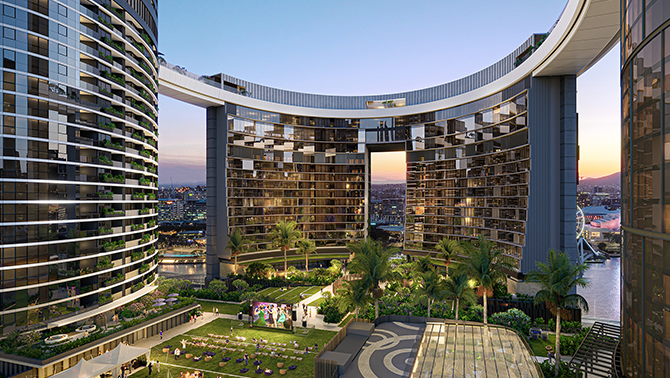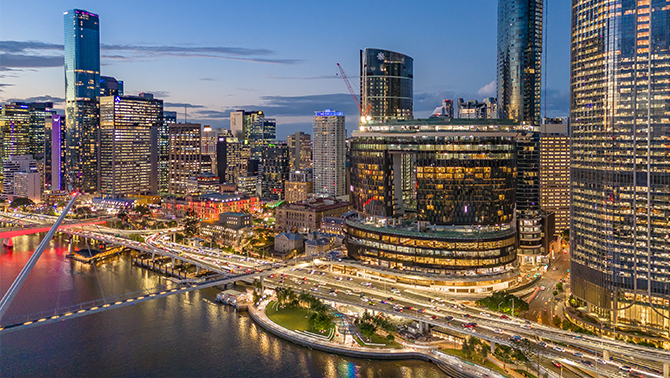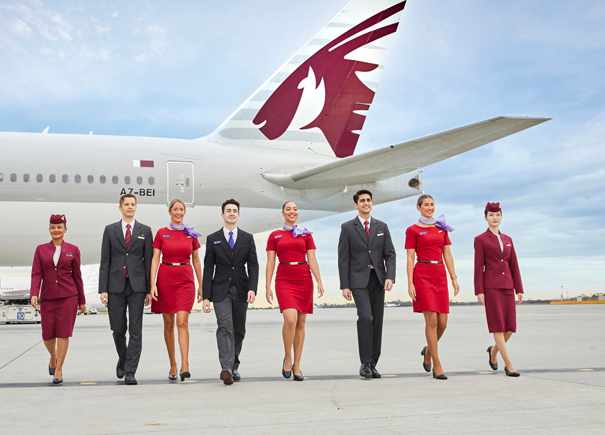Unveiling of Brisbane’s newest jewel brings travel boost

Construction workers are flocking to Brisbane in droves, as the city lifted the veil on Queen’s Wharf last week, and Brisbane officially becomes one stop away from the 2032 Games.
Exclusive new data from Corporate Traveller has shown an uplift in business travel to Brisbane, with the construction sector leading the charge.
Travel booking data in the first half of 2024 has revealed 17 per cent growth of corporate arrivals into Brisbane when compared to the first half of 2023.
Corporate Traveller Global Managing Director Tom Walley said the opening of Queen’s Wharf marked one of the key milestones that was attracting domestic and international demand for travel into the city.
“The growth of travel we’re seeing into the Queensland capital is outpacing the rate of growth into what’s been long known as the corporate travel darling; Sydney,” Mr Walley said.
“We’ve seen a big jump in travellers coming to Brisbane, both from domestic and international locations, and this has been a consistent trend over several years – but recently, we’ve seen this built upon by the construction sector.
“Roughly one in five of these corporate arrivals have entered the city for construction-related purposes – be it labourers, material suppliers, engineers, architects, or other consultants.”
The Star Brisbane CEO Daniel Finch said there’s no denying Brisbane is booming, with annual visitor spending topping $10.6 billion according to recent Tourism Research Australia data.
“We’ve also emerged as Australia’s ‘bleisure’ capital, meaning business visitors are spending more time and money in our city compared to any other state,” he said.

“It’s an enormous vote of confidence in Brisbane’s economic future and underpins the importance of city-shaping developments such as our $3.6 billion investment in The Star Brisbane and broader Queen’s Wharf Brisbane precinct.”
JLL’s Brisbane Construction Market Perspective has revealed an anticipated $94 billion investment in Queensland infrastructure over the next four years (Q3 2024 to Q3 2028).
With this investment, the State is expected to see a 200 per cent growth in demand for construction labour over the three years from the end of 2023 to 2026, with activity levels peaking in early 2026.
Mr Walley said the pipeline of work across Brisbane and southeast Queensland spoke for itself.
“Brisbane's economy has shown resilience in recent years, rebounding strongly relative to other cities from the global pandemic, and faring more positively amidst economic challenges,” he said,
“From our customer data intel and booking data, it’s clear that construction is a key driver of both economic stimulation and travel demand into Brisbane.
“It’s no surprise that Queensland is the leader in construction-related travel. With the opening of Queen’s Wharf, the ongoing development of major transport projects such as Cross River Rail and Brisbane Metro, the Queensland government’s commitment to delivering one million homes by 2046, and of course, the large-scale projects set to shape the 2032 Games.
“With major construction and engineering projects such as these, travel is vital to the companies that are involved. Projects of this scale involve boots on the ground, and people meeting face to face, from the tender process right through to the handover of the keys. That’s why we’re seeing travel across the construction sector ramp right up.”
According to Oxford Economics, Brisbane's economy has outperformed most other APAC cities over recent years, and this trend is expected to continue with economic growth of around 24 per cent forecast from 2024 to 2032.



